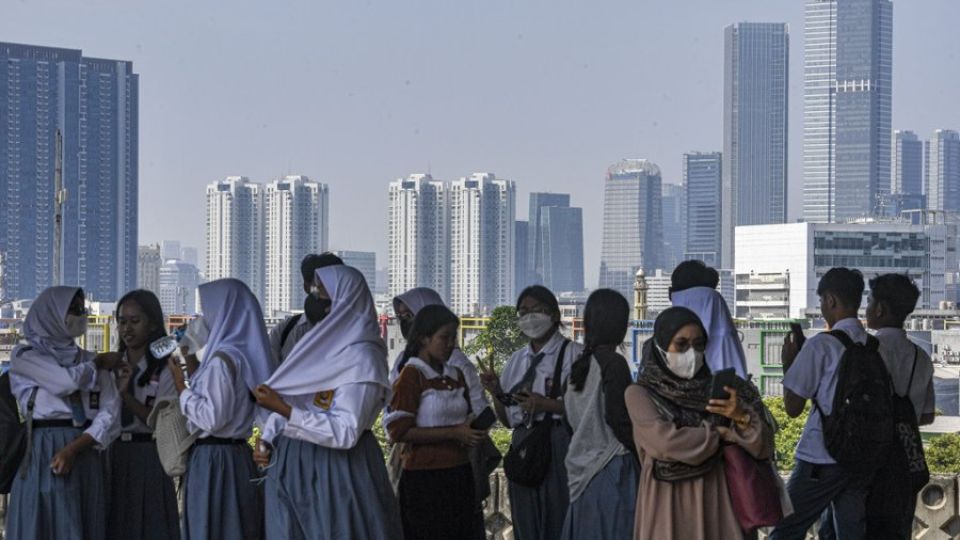JAKARTA (ANN/THE JAKARTA POST) – Indonesia has navigated a commendable economic trajectory this year, defying the challenges posed by the waning commodity boom that cast a shadow on exports, a crucial driver of gross domestic product (GDP) growth in the preceding year.
Despite a decline in exports, which contributed significantly to the 16.28 per cent year-on-year (yoy) growth in 2022, Indonesia achieved a noteworthy 5.31 per cent GDP growth, surpassing expectations in the midst of a global economic downturn, according to Statistics Indonesia (BPS) data.
During this period, elevated prices of commodities like coal, crude oil, and natural gas reached multiyear peaks, propelled by uncertainties and supply disruptions linked to the conflict in Ukraine.
Notably, the disruption in vegetable oil supply, including crude palm oil (CPO), was also a consequence of the war.
However, the buoyant commodity prices witnessed a downward spiral throughout the current year, influenced by subdued global demand, albeit remaining higher than pre-pandemic levels.
As of November, coal prices plummeted by 62.94 per cent year on year to USD126.8 per tonne, while CPO experienced a 12.19 per cent year-on-year decline, settling at USD830.5 per tonne, as reported by the World Bank.
Indonesia, whose two largest export commodities are CPO and coal, saw its average export growth fall to 1.55 per cent yoy nine months into this year, while its average GDP growth hovered at 5.05 per cent yoy.
Analysts believe Indonesia’s growth could be as low as 4.9 per cent this year, but the government maintained it could remain above 5 per cent until the end of this year, despite being lower than the 5.3 per cent target set in the state budget.
In early November, Finance Minister Sri Mulyani Indrawati said that the government projects 5.04 per cent GDP growth for this year and to attain that it has deployed several tools to stimulate economic activity, including exempting value added tax (VAT) for housing purchases.
The International Monetary Fund’s (IMF) World Economic Outlook in October forecast that Indonesia’s economy would end up at the annual rate of 5 per cent flat this year and, likewise, the World Bank also projected a similar figure.
Wael Mansour, a senior economist at the World Bank for Indonesia and Timor Leste, said on December 12 that 5 per cent “is a really resilient growth, given the global environment”. He continued by explaining that this progress was a result of “rebounding domestic demand”.
The Indonesian economy has been anchored in household consumption, which consistently contributes around 50 per cent of the country’s GDP.
Household consumption growth has remained resilient, averaging 4.94 per cent during nine months of this year, almost unchanged compared to an average of 4.93 per cent in 2022, according to BPS.
However, Mansour pointed out that government spending was very low up until October, despite its role in boosting demand. The World Bank also expected the fiscal deficit to be much lower than what the government had planned.
According to the Finance Ministry, spending realisation remained below 85 per cent of the target as of December 12, two weeks before the year draws to a close.
Meanwhile, the budget deficit remained at a mere 0.17 per cent of GDP, far below the planned 2.84 per cent deficit set in this year’s budget law, which the government later projected could decline to 2.28 per cent or less.
Considering that “very low deficit”, Mansour said that Indonesia’s fiscal policy had more room “to look at spending”.
He went on to say that Indonesian fiscal policy was proven to be good at absorbing shocks by creating stimulus packages during the pandemic, providing social safety net subsidies and giving out rice aid.
However, it has been less successful in creating pro-growth programs such as investing in infrastructure or human capital, he said.
“[The Indonesian government was] very good at absorbing shock and being prudent, which is something it should be commended for. But there’s more room to think about fiscal policy that accommodates more growth going forward,” said Mansour.
The World Bank said the risk of slower growth will likely intensify next year, citing prolonged weakening international trade and global growth as well as a high interest rate environment.
It projects Indonesia’s growth may hover around 4.9 per cent throughout the next three years.
The Institute for Development of Economics and Finance (Indef) set an even lower prediction for 2024 of just 4.8 per cent, as it anticipates the potential impacts of continued weakening of global growth and weaker government spending.
“Government spending [in 2024] will not be optimum because policymakers will start to concentrate on the endeavour of election succession,” Indef said in its report published on December 6.
Indonesia will hold a general election in February next year and the president-elect will enter office the following October, creating an 8-month transition period, Indef said.
Furthermore, many ministers in President Joko “Jokowi” Widodo’s cabinet hold significant roles in political parties as well as in the ongoing presidential race.
A political year normally holds investment back as investors take a “wait and see” position to ensure certainty, Indef said, adding that, paired with the global economic slowdown, it would take a toll on 2024 growth.
International Market Assessment (IMA) Asia wrote in its report in December that Indonesia’s strong commodities sector and prudent budget management will leave the government well placed to support growth and contain risks next year.
It also expects regional elections in late 2024 to trigger more spending, while extra election funds will be injected into the economy next year if the presidential race requires a runoff.
IMA’s report showed that Indonesia could book much higher growth next year because of improved global conditions, such as lower inflation and expected central bank rate cuts.







